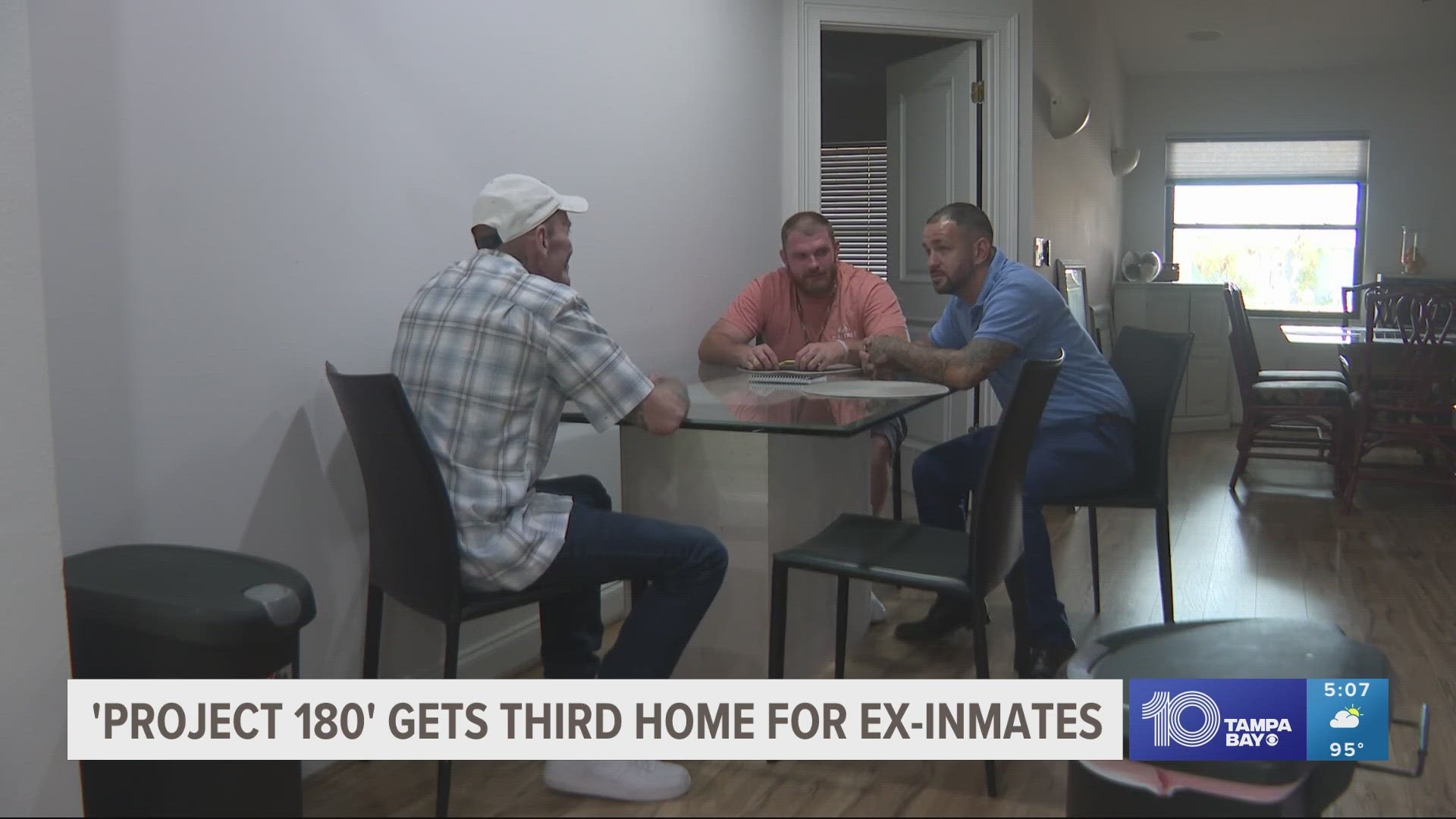SARASOTA, Fla. — A nonprofit in Sarasota that helps formerly incarcerated citizens get back on their feet has marked a new milestone in its efforts.
The group Project 180 just bought a third house to expand their residential program. The program targets rehabilitating men in alcohol and drug recovery after prison.
According to advocates with the organization, along with crime, substance abuse often precedes a life of instability and multiple bouts of incarceration.
"I had a really bad addiction to opioids. I had a really bad pill problem and my life spiraled out of control," Thomas Graff who was formerly incarcerated said. "One thing led to another. I committed a few bad felonies armed robberies to be to be honest with you."
After spending eight years in a Florida prison, Graff now lives in Sarasota at a home run by Project 180.
"I came out and thought I could do this on my own without following any kind of structured program and managed to get two more DUIs within five days," Graff said.
With his newfound freedom cut short, Graff spent another two years in the system.
"That rock-bottom made me realize when I lost everything and everyone, [I] lost my friends, my family, everything I owned and had nothing whatsoever. I needed help," he said.
Graff got that help from Project 180 through a prison outreach program that helps connect soon-to-be-released incarcerated citizens with external resources to assist with reentry and rehabilitation in order to avoid recidivism.
"Getting clean, it's the hardest thing," Barbara Richards, president and CEO of Project 180, said.
Working with assigned social workers, the group helps people like Graff get back on their feet through step-by-step efforts to regain their driver's licenses, bank accounts and find steady employment and sustainable housing.
With two homes, the first of which was obtained in 2018, they've helped nearly 100 men not only recover from drug and alcohol addiction but restabilize, rebuild and give back to society. They hope to expand with the third home just recently opened to help more people.
"An essential element to that is having a community of individuals who care about you and want you to succeed and support you in staying clean," Richards said.
According to the Florida Department of Corrections, the state's recidivism rate is around 25% within three years of release. That number jumps to 35% for those released within five years. Richards says many of those cases are linked to addiction.
"If there were any other diseases that were as prevalent in any social is constructed institution, we would really take a look at that," she said.
For now, instead of several years per individual, the organization spends 24 months working to rehabilitate men like Graff who take accountability and make a commitment to themselves to turn a new leaf long term.
"They offered me a step and a chance that nobody else offered me," Graff said. "They offered me a chance and a hope of rebuilding my life and the tools and steps that I need to complete that, along with the people to surround myself with to make me a better person than I am. My best hope has already been achieved. Now I'm just living the dream."
A grant from the Charles & Margery Barancik Foundation supported Project 180's third house. Each house can serve up to six to eight clients at a time.

